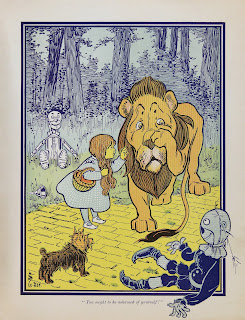Week 4 Lab: Mythology Crash Course Videos
Athena appearing to Odysseus to reveal the Island of Ithaca. Oil painting from the 18th century by Giuseppe Bottani. Web source: Wikimedia Commons.
This week I decided to work on a story lab instead of retelling a story from one of my readings. For this project, I watched a series of Crash Course videos on world mythology. I really enjoy using this type of video to learn more about encompassing subjects, like mythology because it helps break these big ideas down into smaller, more digestible concepts.
What is a Myth? Crash Course World Mythology #1
I thought that comparing mythology to a Slurpee was a really great (and funny) way of explaining how many different subjects contribute to mythology. Just during the first few weeks of this class, I have read stories that could be incorporated in my gender studies, history, or international studies classes.
Theories of Myth: Crash Course World Mythology #12
This lesson focused on how myths are studied. The origins of mythology can be traced back as far as Ancient Greece. Plato is credited with the idea that myth equals lie, and this idea is largely what the subject is built around. Once Plato became Euhemeros, he claimed that because those who came before him didn't have scientific knowledge to explain things in their lives, they used made up stories, aka myths, to try to make sense of things. This idea was also later employed by early Christians, who changed it to fit their Christian ideas. As time goes on, the way people understand and study myths continues to change.
I think that it is so fascinating to look at the history of mythology. It seems crazy that one person (Plato/Euhemeros) could have so much influence on a concept that incorporates so many areas of study. I also find it a little funny that, just like there is uncertainty surrounding where myths have come from, there is also some confusion surrounding who and how people have been studying myths for centuries. This uncertainty leaves so much room for further explanation, studying, and storytelling though, so mythology is something that we will never know everything about.
The Hero's Journey and the Monomyth: Crash Course World Mythology #25
This video was all about heroes! I have heard about the idea of the hero's journey before, but I don't think that I have ever heard it called the monomyth, so that was something new that I learned right off of the bat. I was most interested though in how the video highlighted some of the issues with Joseph Campbell's theory of the hero. He had some problematic ideas, and mainly focused heroism on men or masculine figures. I am currently in a class that is studying female heroes in action movies in Hollywood, and I can't help but think about how far back the shaping of female heroes goes. This started back with some of the earliest of myths, and it is still seen in our popular culture today.
In myths, women are often seen as sexual adversaries, objects, or prizes to be won. The myth of about the seven sisters covered in the video moved away from many of the prescribed heroic expectations, so I was very excited to listen to this story. The girls conquered hunger, pain, and fear and become celestial bodies. This makes me want to study more about women heroes in myths.




Comments
Post a Comment